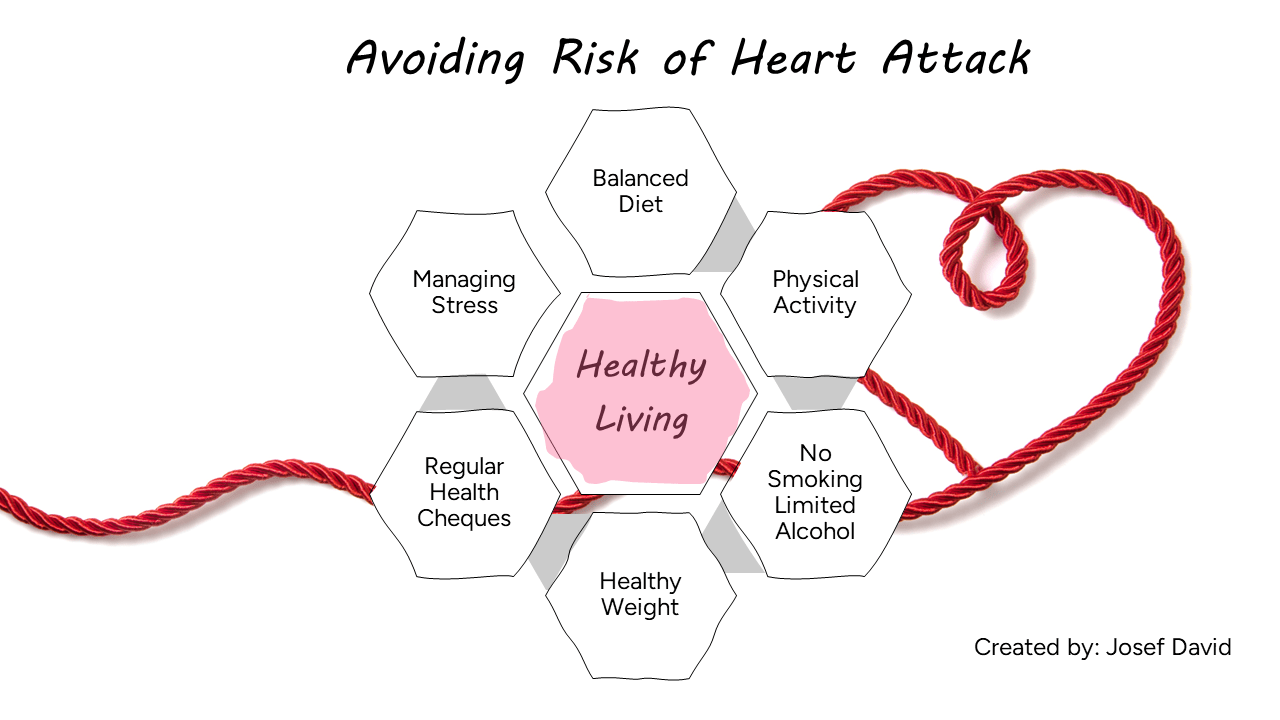What is a Heart Attack?
A heart attack, medically known as myocardial infarction, is a serious medical condition where the supply of blood to the heart is suddenly blocked, usually by a blood clot. This lack of blood flow can damage or destroy part of the heart muscle, leading to severe health complications or even death if not treated promptly.
Who gets Heart Attacks?
Heart attacks can affect anyone, regardless of age, gender, or ethnicity. However, certain groups are more susceptible than others. Individuals over the age of 65, men, and people with a family history of heart disease are at a higher risk. Additionally, certain ethnic groups such as South Asians and African-Caribbeans in the UK have been found to be more prone to heart disease.
Why does one get a Heart Attack?
The primary reason for a heart attack is coronary artery disease (CAD), where plaque builds up in the arteries that supply blood to the heart. This plaque narrows the arteries and restricts blood flow. If a piece of this plaque breaks off, it can cause a clot that blocks blood flow completely, resulting in a heart attack.
What are the most critical causes affecting Heart Attacks?
1.Unhealthy Diet: A diet high in saturated fats, trans fats, cholesterol and sodium can lead to high cholesterol levels and high blood pressure – two major risk factors for heart disease.
2. Physical Inactivity: Lack of regular physical activity can contribute to unhealthy weight gain leading to obesity and other health problems like diabetes and high blood pressure which increase the risk of developing heart disease.
3. Smoking: Smoking damages the lining of your arteries leading to build up of fatty material which narrows the artery causing angina or a heart attack.
4. Excessive Alcohol Consumption: Drinking alcohol excessively can raise your blood pressure and contribute to obesity, both of which are risk factors for heart disease.
5. Chronic Stress: Long-term stress and mental health issues like depression and anxiety can increase the risk of heart disease as they affect behaviours and factors that increase heart disease risk like high blood pressure and cholesterol levels, smoking, physical inactivity and overeating.
How avoiding heart attacks?
Living a healthy lifestyle is the best way to lower your risk of heart disease. This includes:
– Eating a balanced diet rich in fruits, vegetables, lean proteins, and whole grains.
– Regular physical activity, ideally 150 minutes of moderate-intensity exercise a week.
– Avoiding smoking and limiting alcohol consumption.
– Maintaining a healthy weight.
– Regular health check-ups to monitor blood pressure, cholesterol levels, and diabetes.
– Managing stress through relaxation techniques such as yoga, meditation or mindfulness.
Conclusion and Next Steps
Heart attacks are serious medical emergencies that require immediate attention. Understanding the causes can help you take steps to reduce your risk. If you have any concerns about your heart health or if you’re at high risk of heart disease, it’s important to consult with a healthcare professional. They can provide guidance on lifestyle changes or treatments that can help protect your heart.
Remember, prevention is always better than cure. So start taking steps today towards a healthier lifestyle to keep your heart in good shape.
